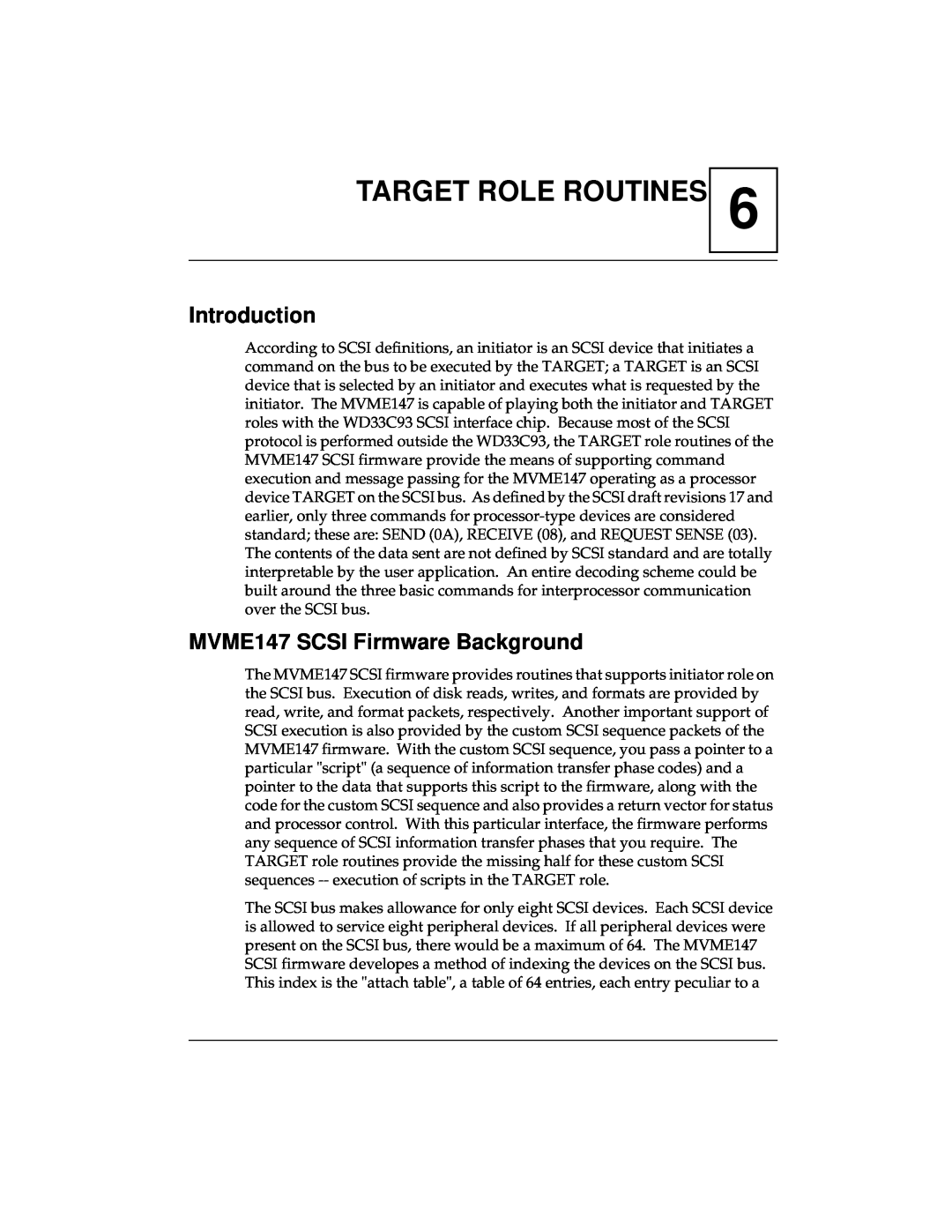
TARGET ROLE ROUTINES
6
Introduction
According to SCSI definitions, an initiator is an SCSI device that initiates a command on the bus to be executed by the TARGET; a TARGET is an SCSI device that is selected by an initiator and executes what is requested by the initiator. The MVME147 is capable of playing both the initiator and TARGET roles with the WD33C93 SCSI interface chip. Because most of the SCSI protocol is performed outside the WD33C93, the TARGET role routines of the MVME147 SCSI firmware provide the means of supporting command execution and message passing for the MVME147 operating as a processor device TARGET on the SCSI bus. As defined by the SCSI draft revisions 17 and earlier, only three commands for
MVME147 SCSI Firmware Background
The MVME147 SCSI firmware provides routines that supports initiator role on the SCSI bus. Execution of disk reads, writes, and formats are provided by read, write, and format packets, respectively. Another important support of SCSI execution is also provided by the custom SCSI sequence packets of the MVME147 firmware. With the custom SCSI sequence, you pass a pointer to a particular "script" (a sequence of information transfer phase codes) and a pointer to the data that supports this script to the firmware, along with the code for the custom SCSI sequence and also provides a return vector for status and processor control. With this particular interface, the firmware performs any sequence of SCSI information transfer phases that you require. The TARGET role routines provide the missing half for these custom SCSI sequences
The SCSI bus makes allowance for only eight SCSI devices. Each SCSI device is allowed to service eight peripheral devices. If all peripheral devices were present on the SCSI bus, there would be a maximum of 64. The MVME147 SCSI firmware developes a method of indexing the devices on the SCSI bus. This index is the "attach table", a table of 64 entries, each entry peculiar to a
